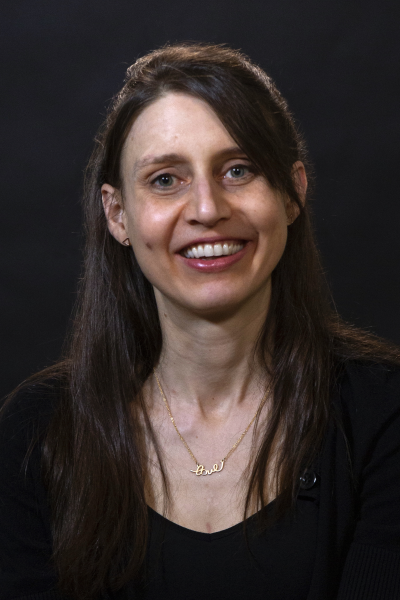Photo provided by Emily Bowles.
Why work in higher education? (Anonymous)
When I was in graduate school, I was taking a seminar on politics and the female author, and at one point during the semester, we talked about how all of us struggled to reconcile our advocacy or activism with our intellectual work. At Lawrence, I’ve had so many opportunities to see what happens when theory and practice collide, and I love knowing that I can play a role in helping students see the myriad ways in which their complex stories are what sustain our community by creating an ecosystem of interdependent voices and visions, all ultimately linked by the shared value we place on lifelong learning and deep intellectual curiosity.
One reason why I love working in higher ed is that I can see both the big picture and the daily iterations of institutional change. Often, it’s frustrating for students because little seems to change in 2, 3, or 4 years, but the efforts individual students have made over the years have significantly altered campus policies and practices—and the concept drilled in during first-year studies (revise, revise, revise) holds true for narratives of academic and institutional success as well. We are always revising in ways that create a story far more complex than it may seem on the surface.
What position at Lawrence do you think has been the most eye-opening? (Anonymous)
A lot of the work I’ve done at Lawrence has been administrative (helping with communication, editing messages, organizing material, keeping up with spreadsheets, working with web forms, and building things like our alumni mentoring platform, Viking Connect). In all of the roles I’ve played, though, the same thing continues to fuel me: in individual interactions with students, alumni, staff, and faculty, I am consistently surprised by the complexity of people’s interests and expertise. One student I’ve gotten to know through the CCE is a plant whisperer and artist—in addition to being a student—and a student in the Fiber Arts Club built a spreadsheet to project their knitting goals into the future, which showed me how many hidden abilities, passions, and skills we all have.
Got any good book recommendations? (Molly Ruffing)
Ummm—a million or so. Goodreads is the only social media platform I use regularly, in part to stalk my celebrity crush Roxane Gay: every book she blurbs is brilliant. If folks haven’t read Bad Feminist, they should. She’s actually how I discovered our recent convo speaker Kiese Laymon awhile back. I tried to make a top five list in response to Molly’s question but defined “five” a little more loosely than a mathematician would.
1. A 1000+ page book that will make you cry, drive you crazy, and impress anyone who sees it on your shelf (tie): A Little Life and Ducks, Newburyport.
2. Book that I wish was in the first-year studies canon: Katie Mack’s The End of Everything, a new book about physics (spoiler: the world ends) that should replace Einstein’s Relativity, a book I was VERY fortunate to teach with not one but two physics majors in my class who did the teaching for me.
3. Dystopian novel that might be more prescient than Margaret Atwood’s The Handmaid’s Tale: Octavia E. Butler’s Parable of the Sower. A few other dystopian novels (because we are in a global pandemic): Naomi Alderman, The Power; Laline Paull, The Bees; N.K. Jemisin, The City We Became; Helen Philips, The Beautiful Bureaucrat; and Edan
Lepucki, California. I love dystopian novels (including YA books like The Giver and The Hunger Games), so if students have recommendations, I’m all ears.
4. Best book about the corporate/capitalist exploitation of women’s bodies by the diet industry: Sarai Walker, Dietland (plus Melissa Broder’s Milk Fed and Roxane Gay’s memoir Hunger: A Memoir of (My) Body). Sometimes these books are a little too realistic and lack the critical edge that these have—I really love the Fight Club-esque twist in Dietland. To look at the same issues from an advocacy/activist stance, other than saying, PLEASE read Audre Lorde, I found Sonya Renee Taylor’s The Body Is Not an Apology incredibly powerful. She explains that we need to fully acknowledge our bodies if we want to show up as activists in ways that challenge the ways in which bodies are rendered disposable, and Christy Harrison digs deep in a well-researched recent book Anti-Diet, which explores how the diet industry is built on the racist, classist, sexist structures that retain their power by keeping us small.
5. On Goodreads, I have a list titled “Book Envy.” I feel like a few authors stole ideas that have been in my head and written the books I wish I had written. Here, though, I’ll share a poem I know I couldn’t have written, published recently by a Lawrence student whose work should be on everyone’s radar: “Status,” by Jesús Marcelo. Of course, if I could write poetry like Professor Range, I’d settle for that too J

